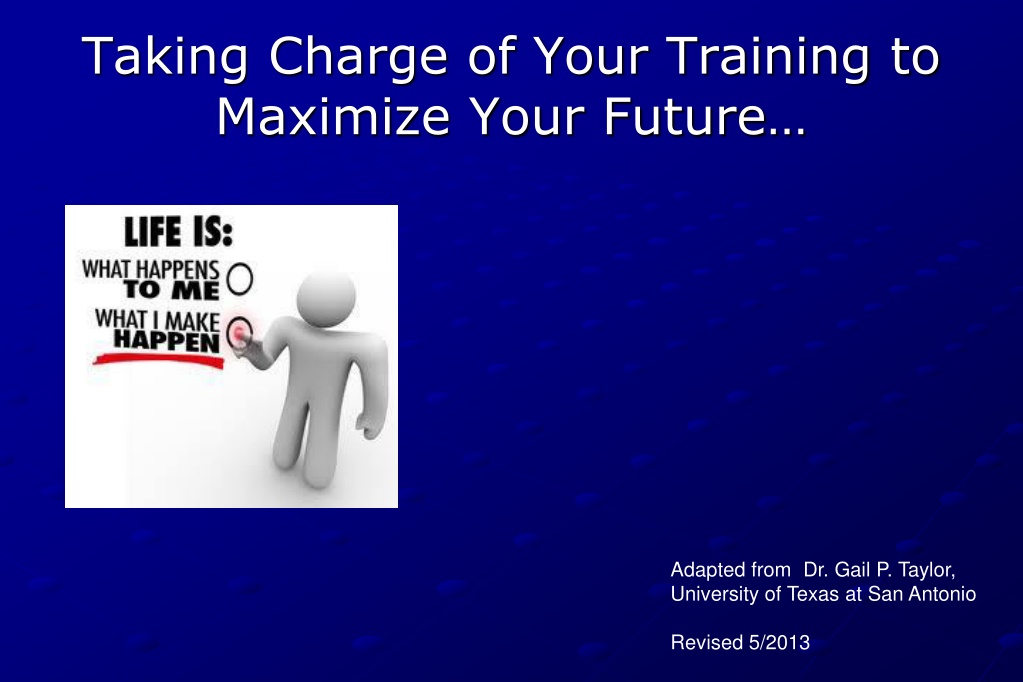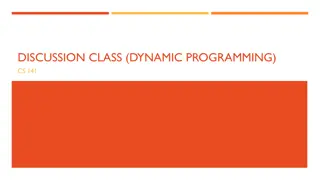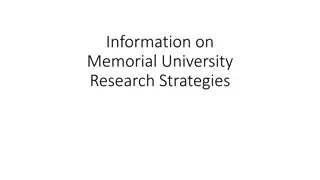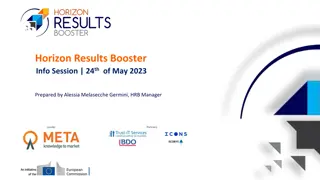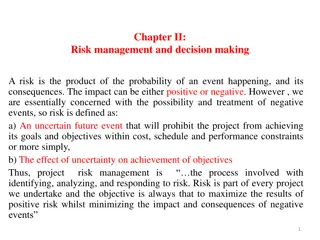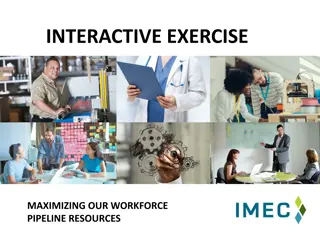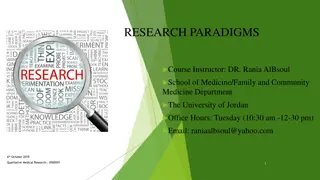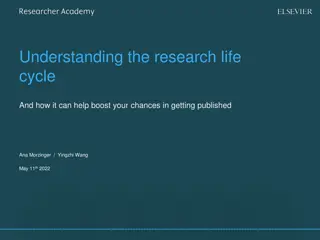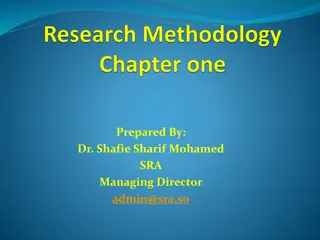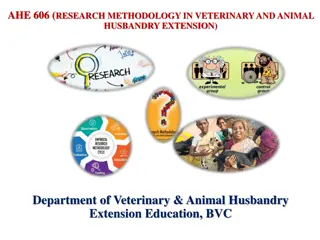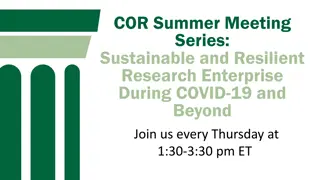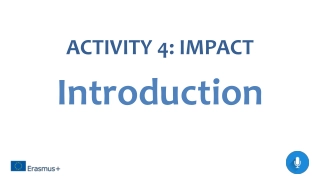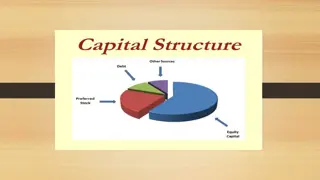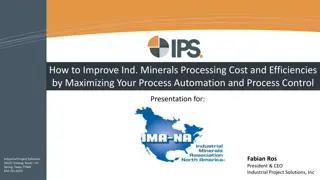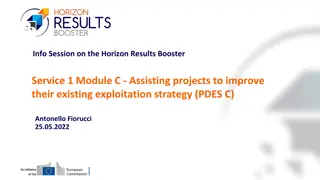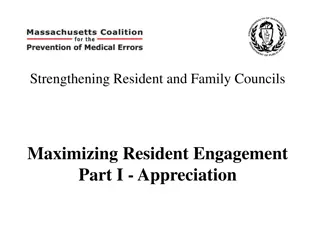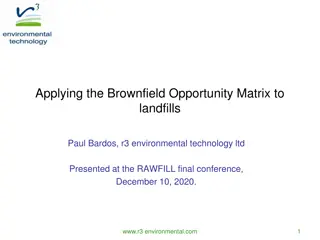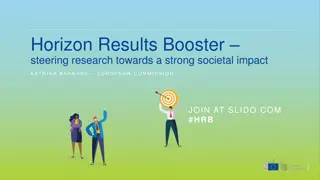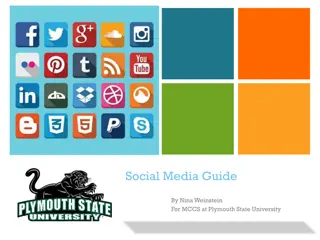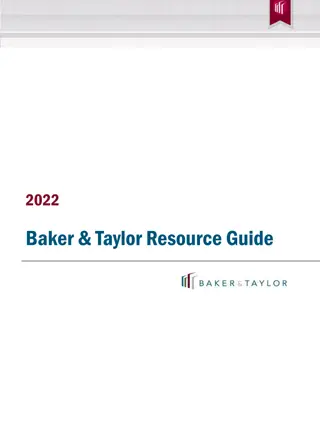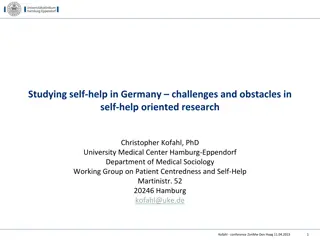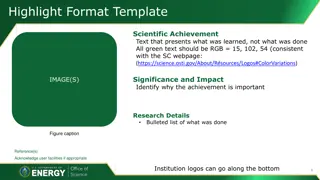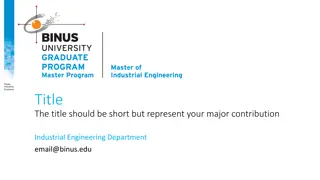Maximizing Your Future in Research: A Comprehensive Guide
Embrace a career in research with tips on setting up a solid foundation, planning for grad school, achieving objectives, and preparing for faculty reviews. Learn about essential skills, approaches to problems, and the importance of teamwork in a research environment.
Download Presentation

Please find below an Image/Link to download the presentation.
The content on the website is provided AS IS for your information and personal use only. It may not be sold, licensed, or shared on other websites without obtaining consent from the author. Download presentation by click this link. If you encounter any issues during the download, it is possible that the publisher has removed the file from their server.
E N D
Presentation Transcript
Taking Charge of Your Training to Maximize Your Future Adapted from Dr. Gail P. Taylor, University of Texas at San Antonio Revised 5/2013
Youve decided on Research as a Career
Why Research? Reasons diverse as there are researchers Discovery Help others Born researcher Curiosity Always something new going on Exciting environment Bored when not learning new things Can change fields
How can you set yourself up for a very solid career?
Planning is bringing the future into the present so that you can do something about it now ~Alan Lakein
What is your Focus?? What do you need to get into grad school? What do you need to excel in grad school! Grants! How do you find the right grad school?
Plan to Achieve Your Objectives! Deep Research Experience(s) Cultivate Letters of Recommendation Take the correct coursework! For program, not degree Learn, not just grades Evaluate Grad Schools Prepare for Standardized Tests Broader Impact experiences Theses/Proposals Reassess as needed!
Set yourself up for Faculty reviews! Strong grasp of your course work Strong work ethic and productivity Responsibly finish what is assigned to you Work to solve own problems High level critical thinking (take time to think!) How do you approach problems? What is the next step of your project? What are the implications of your project? Show enjoyment of what you are doing Teamwork Respect self and others Good communication Teaching ability Honesty/Integrity
Other Things to Learn in Lab Techniques Lab culture Reading the literature/High level reading Designing Experiments Data Analysis Writing Abstracts Conferences Poster and Oral Presentation Grad Courses (mentor recommended) Writing Theses
Other Benefits to UG Research Academic: Validates coursework Intro to balancing school and research Deeper Faculty contact/mentoring Personal: Self-confidence Maturity Knowledge that you can have an impact Generally, an increase in motivation Professional Observe a high level career Learn to speak like a professional CV/Resume that stands out Letters of recommendation Publications
Overcome Weaknesses Now Fear #1 Oral presentations Writing Passivity Anxiety Single-mindedness Self-doubt/Imposter Syndrome Reassess as needed! Counseling Center Academic Coaching TRC
Path might not be direct Undergraduate -> PhD (Biosciences) Undergraduate -> Start MS -> PhD (others) Undergraduate -> MS -> PhD (others) Undergraduate -> Postbacc -> PhD Undergraduate -> Job (research) -> PhD Depends on: Research Experience Skill in lab Letters Confidence Grades
Set Yourself up For GRFP!! Academic Research Letters Project Broader Impact http://www.nsf.gov/funding/pgm_summ.jsp?pims_id=6201
Small opportunities are often the beginning of great enterprises . ~Demosthenes
